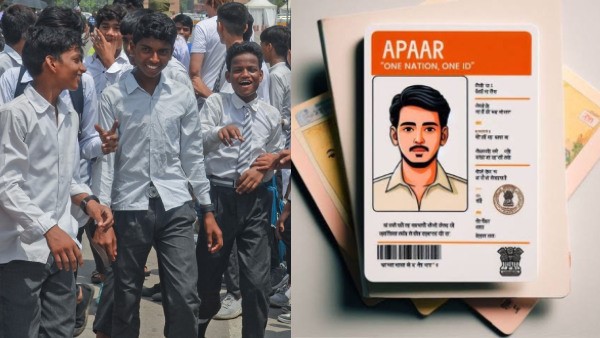
One Nation One Student ID (APAAR)

28.10.2023
One Nation One Student ID (APAAR) , Daily Current Affairs , RACE IAS : Best IAS Coaching in Lucknow
|
For prelims: 'One Nation, One Student ID'(APAAR),Important points,NETF For mains GS paper 2 : Objective,Work,Importance, |
Why in the news?
Recently, several state governments have requested schools to seek parental consent for the creation of a new student identity card called APAAR.
Important points:
- This initiative was launched by the Ministry of Education as part of the National Education Policy 2020.
- As early as May 2023, Dr Anil Sahasrabuddhe, head of the National Educational Technology Forum (NETF) and former AICTE chairman, had mentioned working on a registry of the entire educational ecosystem encompassing students, teachers and schools and colleges .
About 'One Nation, One Student ID'(APAAR):
- The Union Education Ministry has directed states to start implementing the Automated Permanent Academic Account Registry (APAAR), also known as "One Nation, One Student ID".
- This registry will provide a unique identification number to every student from pre-primary to higher education.
- This will be in addition to the Aadhaar ID that every person already has.
- To create APAAR ID, students have to provide basic information like name, age, date of birth, gender and a photograph. This information will be verified using their Aadhaar number.
- In case of minors, their parents will have to sign the consent form, allowing the ministry to use the student's Aadhaar number for authentication with UIDAI.
- Registration for creating APAR ID is voluntary, not mandatory.
Objective :
- Reduce fraud and duplicate academic certificates with a single, trusted reference for educational institutions.
- Tracking educational progress from pre-primary to higher education.
- To act as a gateway to DigiLocker.
- DigiLocker is a digital system where anyone can store their important documents and achievements digitally.
Work :
- Every student with an APAR ID must be linked to the Academic Bank of Credit (ABC) to store certificates and credits.
- Upon completion of the course, it is digitally certified and stored securely.
- Only first party sources will be allowed to credit the system, ensuring authenticity.
- With APAR ID, students will be able to store all their certificates and credits, whether they come from formal or informal education.
- When a student completes a course or achieves something, it is digitally authenticated by authorized institutions and safely stored in his/her account.
- If the student changes schools, whether within the state or to another state, all his data in ABC gets transferred to his new school just by sharing the APAR ID.
- He will not be required to provide physical documents or transfer certificates.
Importance:
- Every student will get a lifetime APAR ID, making it easier for learners, schools and governments to track educational progress from pre-primary education to higher education.
- APAAR will also serve as a gateway to DigiLocker, a digital system where students can store their important documents and achievements, such as exam results and report cards, digitally.
National Educational Technology Forum (NETF):
- NETF is an autonomous body under the Ministry of Education.
- Which was established under NEP 2020, to address the gaps in the education sector and provide strategic emphasis on technology-based interventions.
- Such as setting standards of content and technology, and guidelines for online/digital learning.
Source: India Today